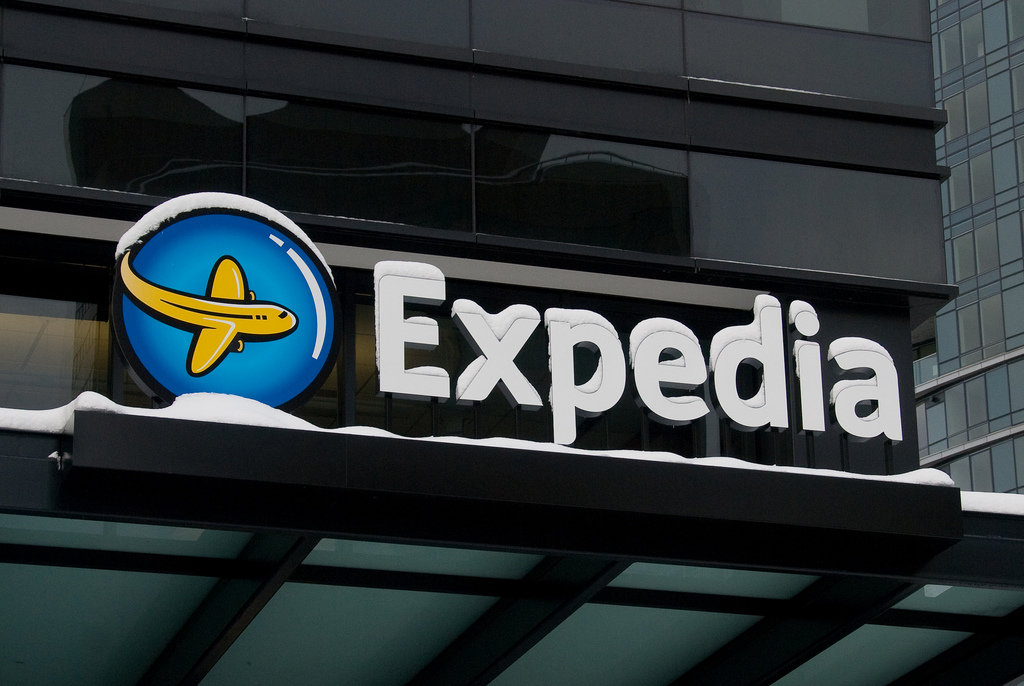 Even the mighty can fall hard with bad SEO practices.
Even the mighty can fall hard with bad SEO practices.
Travel giant Expedia saw a 4.3% percent drop in its stock price on Tuesday, Jan. 21. The cause for the sharp decline? Lowered search rankings, triggered by Google. Expedia’s relative rankings for highly-desirable travel-related search terms sank by 25%, according to Searchmetrics, as reported by Jack Nicas in The Wall Street Journal. The dressing-down, likely driven by paid outside links, is estimated to cut Expedia’s traffic by 20%.
In the span of 24 hours, this market mechanism provided an amazing illustration of the contribution search engine rank makes to share value. In the end, the culprit was simply poor search engine optimization (SEO). If this can happen to a top-tier site, it’s obvious anyone’s business is susceptible.
Expedia was called out back in December by SEO firm Nenad for bad practices like paid links, and clearly these habits caught up with them. When Google notices tactics they deem less than desirable, they work diligently to update their algorithms, ensuring such efforts are not rewarded with higher rankings. Expedia has become another victim of these updates, and if the company is practicing any black hat SEO habits, it’s well deserved.
Unfair Advantage
Why are paid link practices frowned upon? It gives companies with big budgets an unfair advantage, and most importantly, it falsely inflates SEO rankings. Google makes money from great content first and foremost, so they do not support efforts that boost search engine result pages (SERPs) through tactics that lack integrity. Search engines determine the value of a website via a complex matrix of parameters, including outside links. Marketers paying others to publish links to their site is still a major no-no. It was discovered that even phrases like “United Airlines” were pointing back to Expedia — a luxury they paid for and are paying for again, in different terms. Those were expensive links indeed.
As Google search expert Matt Cutts puts it, “The objective is not to ‘make your links appear natural,’ the objective is that your links are natural.”
Best Strategy
How do you avoid following Expedia into hot water? The answer is — and probably always will be — by creating stellar content. Resist the urge to shortcut your efforts with black hat tactics. You may fool Google for a spell, but any paid efforts that don’t honestly reflect your site’s value eventually will be discovered.
Think of it this way: Great content is the reason any source would choose to link to your site. If you’re producing blogs, articles, videos, infographics, or any form of intriguing content that provides value to your audience, folks will be excited to share your efforts, and thus link up a storm to your sites. Buying links, as Expedia has just proved, just doesn’t fool anyone. Especially Google.
Dings like the one Expedia is experiencing can take months, or even years to recover from, and sometimes recovery isn’t even feasible. Search engines are still the No. 1 way, by a landslide, that users find sites they are looking for, which is why falling SERPs equate to falling stock prices.
Build Links Naturally
Don’t fall into the trap of feeling overwhelmed by the do-it-yourself model. Building links naturally and creating a selection of valuable content might seem like daunting tasks, but the rewards are plenty. In the words of Duane Forrester, product manager at Bing:
What continues to plague search marketers is the adherence to old-think issues: ‘Content is too hard to create.’ ‘Links are too hard to build organically.’ This type of focus blinds you to more important things.
Create a content marketing plan and execute it one day at a time. This is the only foolproof method of getting extraordinary organic search results.
Photo by Jonathan Caves